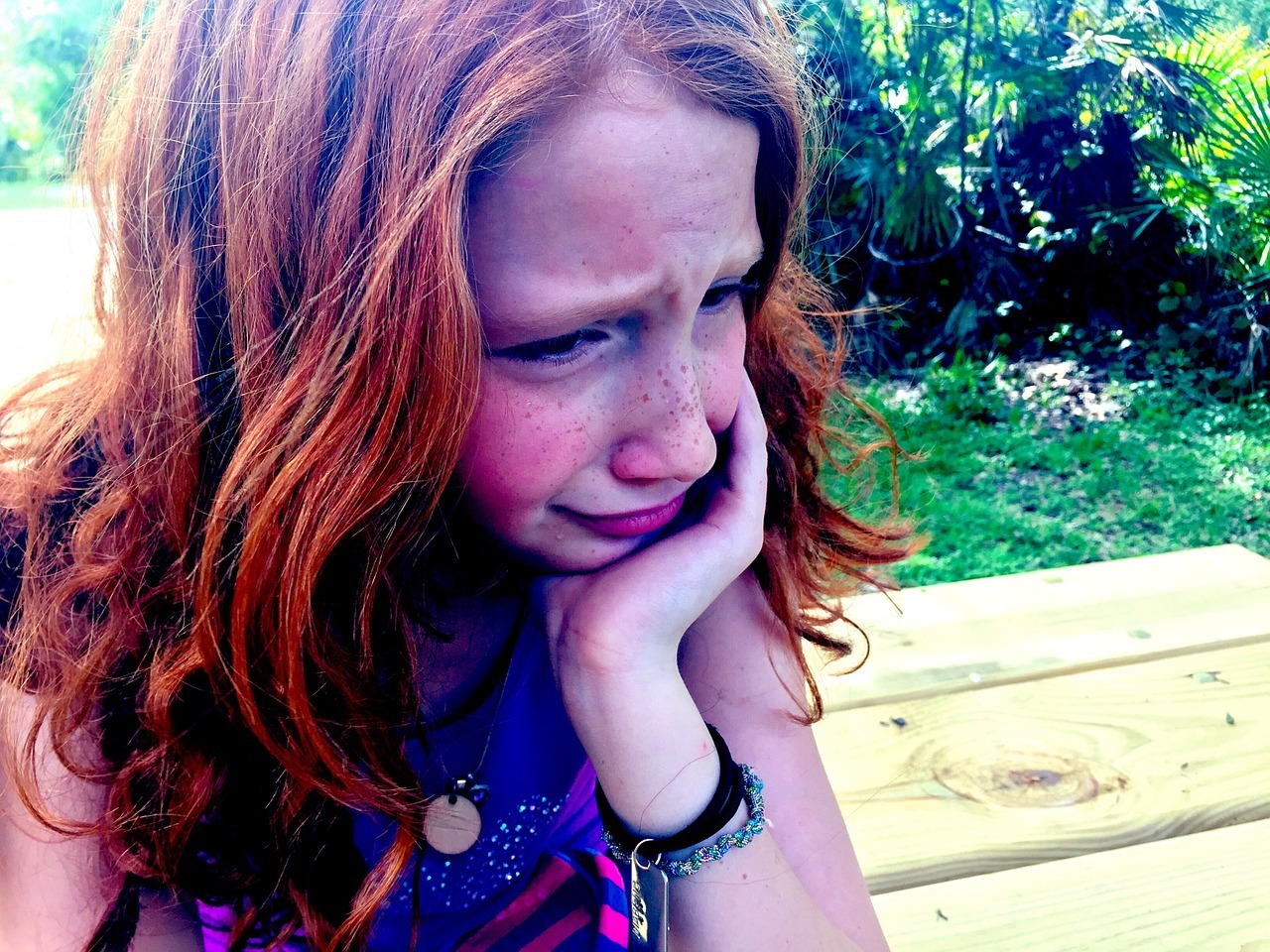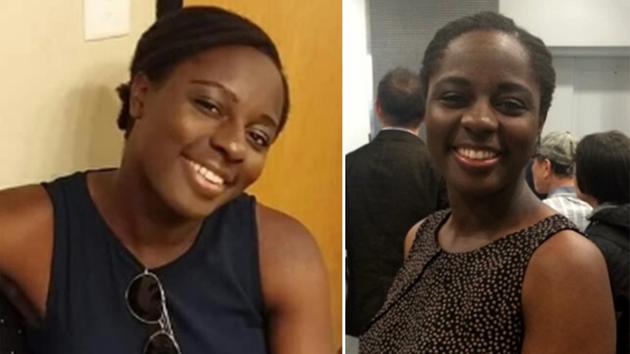Stifled Grief: How the West Has It Wrong
PeskyMonkey via Getty Images
After nearly
seven years of personal experience surrounding loss, I can tell who is
going to read, share and comment on this article and it’s not
necessarily the audience I’ve intended. Those who have walked the
horrific road of loss will shake their collective heads “Yes” at many of
my points below and share with pleads for the rest of the Western World
to read, learn, evolve and embrace these concepts. Unfortunately, my
words will fall short for my intended audience because the premise does
not yet apply to their lives...yet. In time, my words will resonate with
every human on the face of this earth, but until a personal journey
with loss takes place, my words will be passed over in exchange for
articles about gorillas and fights over public bathroom usage.
There is nothing sexy or exciting about grief.
There is nothing that grabs a reader with no personal interest to open my words and take heed to my writing.
I’m here to say that the West has the concept of grieving all wrong.
I’d like to
point out that we are a culture of emotionally stunted individuals who
are scared of our mortality and have mastered the concept of stuffing
our pain. Western society has created a neat little “grief box” where we
place the grieving and wait for them to emerge fixed and whole again.
The grief box is small and compact, and it comes full of expectations
like that range from time frames to physical appearance. Everyone who
has been pushed into the grief box understands it’s confining
limitations, but all of our collective voices together can’t seem to
change the intense indignation of a society too emotionally stifled to
speak the truth. It’s become easier to hide our emotional depth than to
reveal our vulnerability and risk harsh judgment. When asked if we are
alright, it’s simpler to say yes and fake a smile then, to be honest,
and show genuine human emotion.
Let me share
below a few of the expectations and realities that surround grief for
those who are open to listening. None of my concepts fit into societies
grief box and despite the resounding amount of mutual support by the
grieving for what I write below, many will discount my words and label
us as “stuck” or “in need of good therapy.” I’m here to say those who
are honest with the emotions that surround loss are the ones who are the
least “stuck” and have received the best therapy around. You see,
getting in touch with our true feelings, embracing the honest emotions
of death only serve to expand the heart and allow us to move forward in a
genuine and honest way. Death happens to us all so let’s turn the
corner and embrace the truth behind life after loss.
Expectation: Grief looks a certain way in the early days. Tears, intense sadness, and hopelessness.
Reality:
Grief looks different for every single person. Some people cry
intensely, and some don’t cry at all. Some people break down, and others
stand firm. There is no way to label what raw grief looks like as we
all handle our loss in different ways due to different circumstances and
various life backgrounds that shape who we are.
Expectation: The grieving need about a year to heal.
Reality:
Sometimes grief does not even get started till after the first year.
I’ve heard countless grieving people say year two is harder than year
one. There is the shock, end of life arrangements and other business
matters that often consume the first year and the grieving do not have
the time actually to sit back and take the time to grieve. The reality
is there is no acceptable time frame associated with grief.
Expectation: The grieving will need you most the first few weeks.
Reality:
The grieving are flooded with offers of help the first few weeks. In
many cases, helping the grieving six months or a year down the line can
be far more helpful because everyone has returned to their lives and the
grief stricken are left to figure it out alone.
Expectation:
The grieving should bury the dead forever. After a year, it is
uncomfortable for the grieving to speak of their lost loved one. If they
continue to talk about them, they are stuck in their grief and need to
“move on.”
Reality:
The grieving should speak of the dead forever if that’s what they wish
to do. When someone dies, that does not erase the memories you made, the
love you shared and their place in your heart. It is not only okay to
speak of the dead after they are gone, but it’s also a healthy and
peaceful way to move forward.
Expectation: For the widowed - If you remarry you shouldn’t speak of your lost loved one otherwise you take away from your new spouse.
Reality:
You never stop loving what came before, and that does not in any way
lessen the love you have for what comes after. When you lose a friend -
you don’t stop having friends, and you love them all uniquely. If you
lose a child and have another, the next child does not replace or
diminish the love you had for the first. If you lose a spouse, you are
capable of loving what was and loving what is....one does not cancel out
or minimize the next. Love expands the heart, and it’s okay to honor
the past and embrace the future.
Expectation: Time heals all wounds.
Reality:
Time softens the impact of the pain, but you are never completely
healed. Rather than setting up false expectations of healing let’s talk
about realistic expectations of growth and forward movement. Grief
changes who you are at the deepest levels and while you may not forever
be in an active mode of grief you will forever be shaped by the loss you
have endured.
Expectation: If you reflect on loss beyond a year you are “stuck.”
Reality:
Not a day goes by where I am not personally affected by my loss. Seeing
my children play sports, looking at my son who is the carbon copy of
his Dad or hearing a song on the radio or smell in the air. Loss because
part of who you are and even though I don’t choose to dwell on grief it
has a way of sneaking in now and again even when I’m most in love with
life at the current moment. It’s not because we dwell or focus, and it’s
not because we don’t make daily choices to move forward. It’s because
we loved and we lost, and it touches us for the remainder of our days in
the most profound ways.
Expectation: When you speak of the dead you make the griever sad, so it’s best not to bring them up.
Reality:
When we talk about our lost loved one we are often happy and filled
with joy. My loss was six and a half years ago and to this day, my late
husband is one of my favorite people to talk and hear about. Hearing his
name makes me smile and floods my mind with happy memories of a life
well lived. It makes the grieving sadder when everyone around them
refuses to say their name. Forgetting they existed is cruel and a
perfect example of our stifled need to fix the unfixable.
Expectation: If you move forward you never loved them or conversely if you don’t move forward you never loved them.
Reality: The grieving need to do what is right for them, and nobody knows what that is except the person going through it.
Expectation: It’s time to “move on.”
Reality:
There is no moving on - there is only moving forward. From the time
death touches our lives we move forward, in fact, we are not given a
choice but to move forward. However, we never get to a place where the
words move on resonate. The words “move on” have a negative connotation
to the grieving. They suggest a closure that is nonexistent and a
fictitious door we pass through.
Expectation: Grief is a linear process and a series of steps to be taken. Each level is neatly defined and the order predetermined.
Reality:
Grief is an ugly mess full of pitfalls, missteps, sinking, and
swimming. Like a game of shoots and ladders, you never know when the
board might pull you back and send you down the ladder screaming at the
top of your lungs. Just when you think you’ve arrived at the finish, you
draw a card that sends you back to start and just when it appears
you’ve lost the game you jump ahead and come one step closer to the
front of the line.
Expectation: The grieving should seek professional forms of counseling exclusively.
Reality:
The grieving should seek professional forms of counseling but also the
grieving should look strongly towards alternative modes of therapy like
fitness, art, music, meditation, journaling and animal therapy. The
grieving should take an “active” part in their grief process and
understand that coping comes in many different forms for all the
different people who walk this earth.
Expectation: The grieving either live in the past or the present. IT is not possible to have a multitude of emotions.
Reality:
The grieving live their lives with intense moments of duality. Moments
of incredible happiness mixed with feelings of deep sadness. There is a
depth of emotion that forever accompany those who have lived with a
loss. That duality can cause constant reflection, and a deeper
appreciation of all life has to offer.
Expectation: The grieving should be able to handle business as usual within a few weeks.
Reality:
The brain of a grieving person can be in a thick fog, especially for
those who have experienced extreme shock, for more than a year. Expect
forgetfulness, a reduced ability to handle stress and grayness to be
commonplace after a loss.
I’ve just scratched the surface above on the many areas where grief is misunderstood in our society.
One hundred
percent of the people who walk this earth will deal with death. Each of
us will experience the passing of someone close that we love or our
personal morality. It is about time we open up the discussion around
death, dying and grief and stop the stigma that surrounds our common
bond. Judgment, time frames, and neat little grief boxes have no place
in the reality that surrounds loss. Western culture asks us to suppress
our pain, stuff our emotions and restrain our cries. Social media has
given many who grieve the opportunity to open up dialogue, be vulnerable
on a large scale level and take the combined heat that comes with that
honesty. As a whole, society does not want to hear or accept that grief
stays with us in some capacity for the rest of our lives. Just like so
many other aspects of our culture, we want to hear there is a quick fix,
a cure-all, a pill or a healthy dose of “get over it” to be handed out
discreetly and dealt with quietly.
The reality is
you will grieve in some capacity for the rest of your life. Once loss
touches you-you are forever changed despite what society tells you. Stop
looking at the expectations of an emotionally numbed society as your
threshold and measuring stick for success. Instead, turn inward and look
at the vulnerable reality of a heart that knows the truth about loss.
With your firsthand knowledge escape the grief box and run out screaming
truth as you go. If we make enough noise maybe someday societies warped
expectation will shift to align with reality.









 Tears welled up in my eyes, that someone other than her family is thinking of her, and her life which ended way too soon. The picture doesn't do justice to the beauty of these flowers, and I just can't wait till all is whole, and we can be together with our loved ones. I was reading in Ezekiel yesterday, on how even the dry bones shall come back to life. This is what we can count on. ... The Ressurection power of our Lord.
Tears welled up in my eyes, that someone other than her family is thinking of her, and her life which ended way too soon. The picture doesn't do justice to the beauty of these flowers, and I just can't wait till all is whole, and we can be together with our loved ones. I was reading in Ezekiel yesterday, on how even the dry bones shall come back to life. This is what we can count on. ... The Ressurection power of our Lord.


